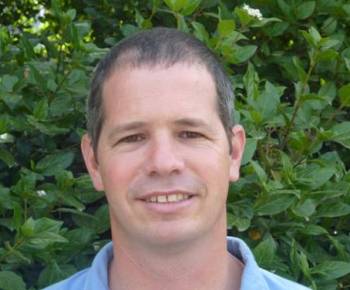| | 02 August, 2011
| | Hebrew University student turns paper mill waste into ‘green’ material for industrial applications | |
 | | Shaul Lapidot |
|
A method to use paper mill waste to produce ecologically friendly, industrial foams from renewable resources has been developed by a graduate student in agriculture at the Hebrew University of Jerusalem.
Foams are used for numerous day-to-day uses, including in the manufacture of furniture and car interiors. In many composite material applications, they are used as core material in “sandwich” panels to achieve high strength, weight reduction, energy dissipation and insulation. Conventional foams are produced from polymers such as polyurethane, polystyrene, polyvinyl chloride (PVC) and polyethylene terephthalate (PET). Since all of these current foams rely on fossil oil, they present a clear environmental disadvantage.
Shaul Lapidot, a Ph.D. student of Prof. Oded Shoseyov, along with his laboratory colleagues at the Robert H. Smith Faculty of Agriculture, Food and Environment of the Hebrew University in Rehovot, has formulated a procedure for production of nano-crystalline cellulose (NCC) from paper mill waste. NCC is further processed into composite foams for applications in the composite materials industry as bio-based replacement for synthetic foams.
The process of paper production involves loss of all fibers with dimensions lower than the forming fabric mesh. Consequently around 50% of the total fibers initially produced are washed away as sludge. In Europe alone, 11 million tons of waste are produced annually by this industry, creating an incentive for finding alternative uses and different applications for the wastes.
Lapidot has found that fibers from paper mill sludge are a perfect source for NCC production due to their small dimensions which require relatively low energy and chemical input in order to process them into NCC. He also developed the application of NCC into nano-structured foams. This is further processed into composite foams for applications in the composite materials industry to be used as bio-based replacement for synthetic foams.
NCC foams that Lapidot and his colleagues have recently developed are highly porous and lightweight. Additional strengthening of the foams was enabled by infiltration of furan resin, a hemicellulose-based resin produced from raw crop waste, such as that remaining from sugar cane processing, as well as oat hulls, corn cobs and rice hulls.
The new NCC reinforced foams display technical performance which matches current high-end synthetic foams. The technology was recently licensed from Yissum, the technology transfer company of the Hebrew University, by Melodea Ltd., an Israeli-Swedish start-up company which aims to develop it for industrial scale production.
Lapidot’s development has led to his being awarded one of the Barenholz Prizes that were presented on June 21 at the Hebrew University Board of Governors meeting. The award is named for its donor, Prof. Yehezkel Barenholz of the Hebrew University-Hadassah Medical School.
|
Downloadable File: ShaulLapidot.doc |
|


